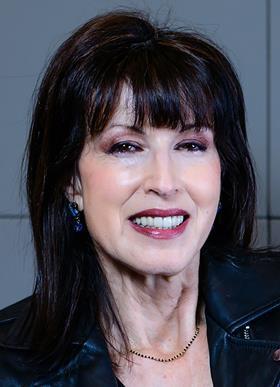Liz Peace recently delivered an excellent Chapman Barrigan Memorial lecture. As a former British Property Federation (BPF) chief executive, whose current roles include chairmanship of Real Estate Balance and Old Oak and Park Royal Development Corporation, Peace has a good overview of the real estate sector.

Her chosen lecture topic, the reputation of the real estate sector, was something that particularly resonated with me as it was an issue we first discussed more than 20 years ago.
The sector tends to be introspective so it’s only when you step outside that the image problem becomes particularly apparent. Some 20 years ago, I embarked on the Sloan MBA programme at London Business School. I was concerned to discover that at this top international business institution, not only was real estate not on the curriculum but the sector was then regarded by faculty and students alike as a dinosaur industry and of little interest or relevance. This is odd when you consider we spend 90% of our lives inside buildings. I was so dismayed by this that I invited Peace, then the new CEO of the BPF, to meet faculty members and to hear from the horse’s mouth so to speak. I believe we convinced her that there was an image issue that needed to be addressed.
Around that time, a BPF annual conference session featured ‘voxpops’ from interviews with members of the public asked if they recognised the identity of the major property developers reshaping their communities. They did not. A founding partner of leading brand agency M&C Saatchi had been drafted in and asked the audience for names of the best-known real estate brands. Only a couple of names came to mind. Now, we understand the importance of trusted brands, but it was clear then that for those outside real estate, its activities were a complete mystery.
How much has changed in the intervening two decades? The sector’s reputation often comes up in my podcast interviews. ING’s Damian Wild recently commented: “I think the real problem is that politicians have such a negative view of this industry… You can see it in planning decisions and so I think reputation isn’t something that’s nice to have. If you haven’t got a good enough reputation, the very act of doing business can become difficult. So, I think it is something that does require attention.”
In her talk, Peace referred to the industry as being seen as “a secret society”. For most people, their experience of real estate will be of residential estate agents or renting homes largely from amateur landlords. There is still no understanding of the array of roles in what we now refer to as the built environment. So, it’s not surprising that we struggle to encourage talented young people from different backgrounds to join us.
There are some excellent outreach initiatives to bring in new talent. These include the University College of Estate Management, which partners with schools and colleges to promote the built environment as a career. Reading Real Estate Foundation launched its Pathways to Property in 2012 to raise awareness of career opportunities by engaging with schools. New London Architecture run education programmes and will be opening their new Guildhall-based London Centre exclusively to schools one day a week. Its Opportunity London initiative is bringing the public and private sector together for the first time in the common cause of promoting investment into London. This is already helping to establish trust between developers and local authorities, which all helps with the reputational issue.
The growing use of technology and the focus on sustainability and decarbonisation are bringing new roles and skillsets into the sector. The recently announced plans to merge the BPF and the UK PropTech Association is welcome news as it creates a good opportunity to spread knowledge of the many aspects of real estate and encourage a new generation with tech skills into the industry.
In the last 10 years, the residential rented sector has seen the rise of the professional landlord as the build-to-rent development sector takes hold. A new focus on customer service from a landlord who is there to build a long-term tenant relationship will hopefully start to change perceptions.
Peace called for a pan-industry alliance to overcome the fragmented nature of the sector with its plethora of industry bodies. Wouldn’t it be amazing if such an alliance could find the funding for a real estate industry rebrand. Perhaps it’s time to call back the brand experts.
Susan Freeman is a partner at Mishcon de Reya






























No comments yet